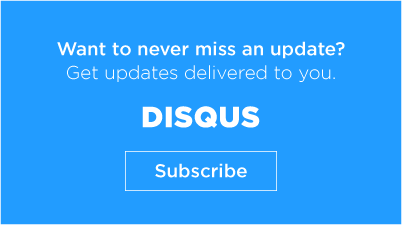Great communities don’t happen by accident. Explore how you can create a community where people (and robots) can learn to enjoy their passions on the open web.
Why you should craft your community
At Disqus, we often talk about our love for the Internet and its inherent vast, diverse, and accessible nature. If one has a passion and access to the Internet, they can connect deeply with hundreds, thousands, or millions of other people instantly. Despite having spent most of my life knowing this, it still amazes me on a daily basis and feels like some sort of awesome, magical power. The open Internet isn’t new anymore. However, there’s novelty in the way we learn to interact with each other in meaningful ways all over the web. Building a successful community requires thought, clear intentions, and a little bit of luck.
Warm fuzzy feelings aside, the things we say, write, or emote within a community can extend beyond our beloved series of tubes and sometimes have real negative consequences on people’s lives. I’ve talked with community leaders and publishers about the trolls that stir up fights on their site, and I’ve talked to the commenters who feel hurt by a community interaction. A computer can impersonalize our interactions with one another, which under the wrong conditions, can empower meanies to be more mean.
Don’t worry though, there’s a bright side – behind those interactions are real life, breathing humans and there are a lot of proven tips and best practices for growing a healthy community. More on this below.
What are we teaching the robots?
A couple of weeks ago, I stumbled upon the news about Microsoft’s fascinating but blighted Tay A.I. Twitter bot experiment (how could I not when people were sharing the links everywhere imaginable?). Of course, as someone who reads a lot about community, I was glued to people’s reactions. As others have described Tay was a mirror held up to one of the largest communities that exists on the web. I’m no computer science buff, but it seemed to me that the unacceptable content which spewed forth was a result of a few “bad-actors” that exploited Tay’s lack of structure. Like a child raised by wolves, Tay never learned how to eat at the proverbial dinner table. By design, she seemed willing to learn anything the depths of Twitter could throw at her.
Ultimately, it was this mix of unstructured learning and unsavory human behavior that ruined the party.
“Don’t read the comments”
We’ve all heard the mantra “Don’t read the comments”. Quality communities are a challenge to that statement, and of course, we’re here to tell you that it’s completely wrong 😁. Anil Dash says it nicely in his popular post
“Preventing abuse online requires the people running a site or an app to invest time, effort and attention into protecting their community. That’s the bottom line.”
Disqus offers tools to this end – to make publishers’ lives easier and to save you time and resources, and we’re constantly looking for new ways to do so. We're here to encourage you to take the optimistic approach! We have some great tips for how you can provide structure to your community, and how you can teach those humans behind the keyboard to be great to each other. With the right tools, a little thought about the community you want to create, a dash of HTML, and a sprinkle of promotion, you have to the power to create a thriving community on the open web.
And lastly, why should you even care? I’d like to add a bit to Anil’s main point. The payoff for investing in a thriving and safe community is huge and this is exactly what we’re passionate about at Disqus. Building a quality community means you get to better understand your audience. What do they care about? Who are they? Do they express themselves in cat or dog GIFs. What is their personal relationship to your journalism, art, music, news, or business? If you don’t already know, now is the time to find out. By focusing on building a successful community on the open web, you can guarantee that your audience (human or robot) will be met with a colorful mix of passion, civility, respect, and hopefully … wonder.
We want to discuss with you...
- We are always interested in learning about successful communities on the open web. Some of our favorites are: AV Club, Superhero Hype, Spoiler TV. What are some of your favorite communities?
- What is your number one trusty tip for creating a thriving community?


